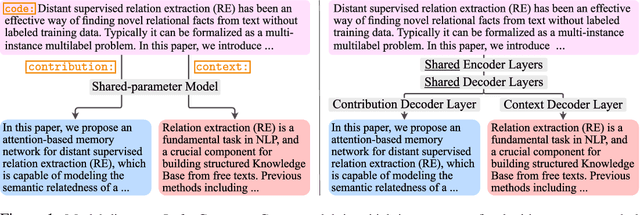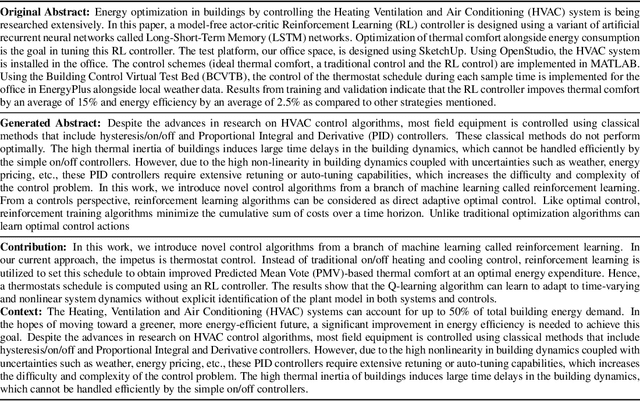What's New? Summarizing Contributions in Scientific Literature
Paper and Code
Nov 09, 2020



With thousands of academic articles shared on a daily basis, it has become increasingly difficult to keep up with the latest scientific findings. To overcome this problem, we introduce a new task of disentangled paper summarization, which seeks to generate separate summaries for the paper contributions and the context of the work, making it easier to identify the key findings shared in articles. For this purpose, we extend the S2ORC corpus of academic articles, which spans a diverse set of domains ranging from economics to psychology, by adding disentangled "contribution" and "context" reference labels. Together with the dataset, we introduce and analyze three baseline approaches: 1) a unified model controlled by input code prefixes, 2) a model with separate generation heads specialized in generating the disentangled outputs, and 3) a training strategy that guides the model using additional supervision coming from inbound and outbound citations. We also propose a comprehensive automatic evaluation protocol which reports the relevance, novelty, and disentanglement of generated outputs. Through a human study involving expert annotators, we show that in 79%, of cases our new task is considered more helpful than traditional scientific paper summarization.
 Add to Chrome
Add to Chrome Add to Firefox
Add to Firefox Add to Edge
Add to Edge